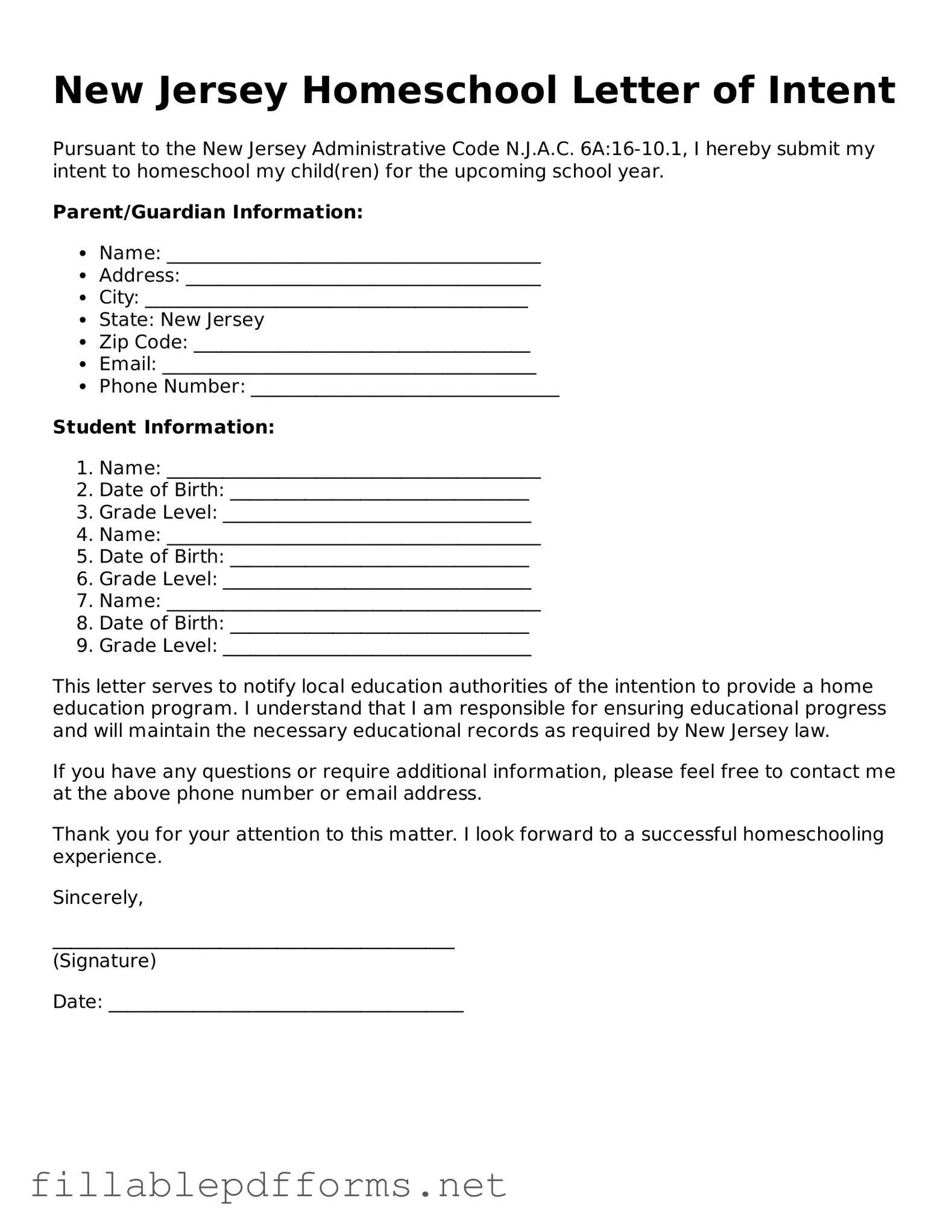Attorney-Verified Homeschool Letter of Intent Form for New Jersey State
The New Jersey Homeschool Letter of Intent form is a document that parents must submit to officially notify their local school district of their decision to homeschool their children. This form serves as a key step in establishing a homeschooling program and ensures compliance with state regulations. By completing this form, parents take an important step in their educational journey, allowing them to tailor their children’s learning experiences.
Launch Editor Here

Attorney-Verified Homeschool Letter of Intent Form for New Jersey State
Launch Editor Here

Launch Editor Here
or
▼ Homeschool Letter of Intent PDF
Almost there — finish the form
Complete Homeschool Letter of Intent online fast — no printing, no scanning.